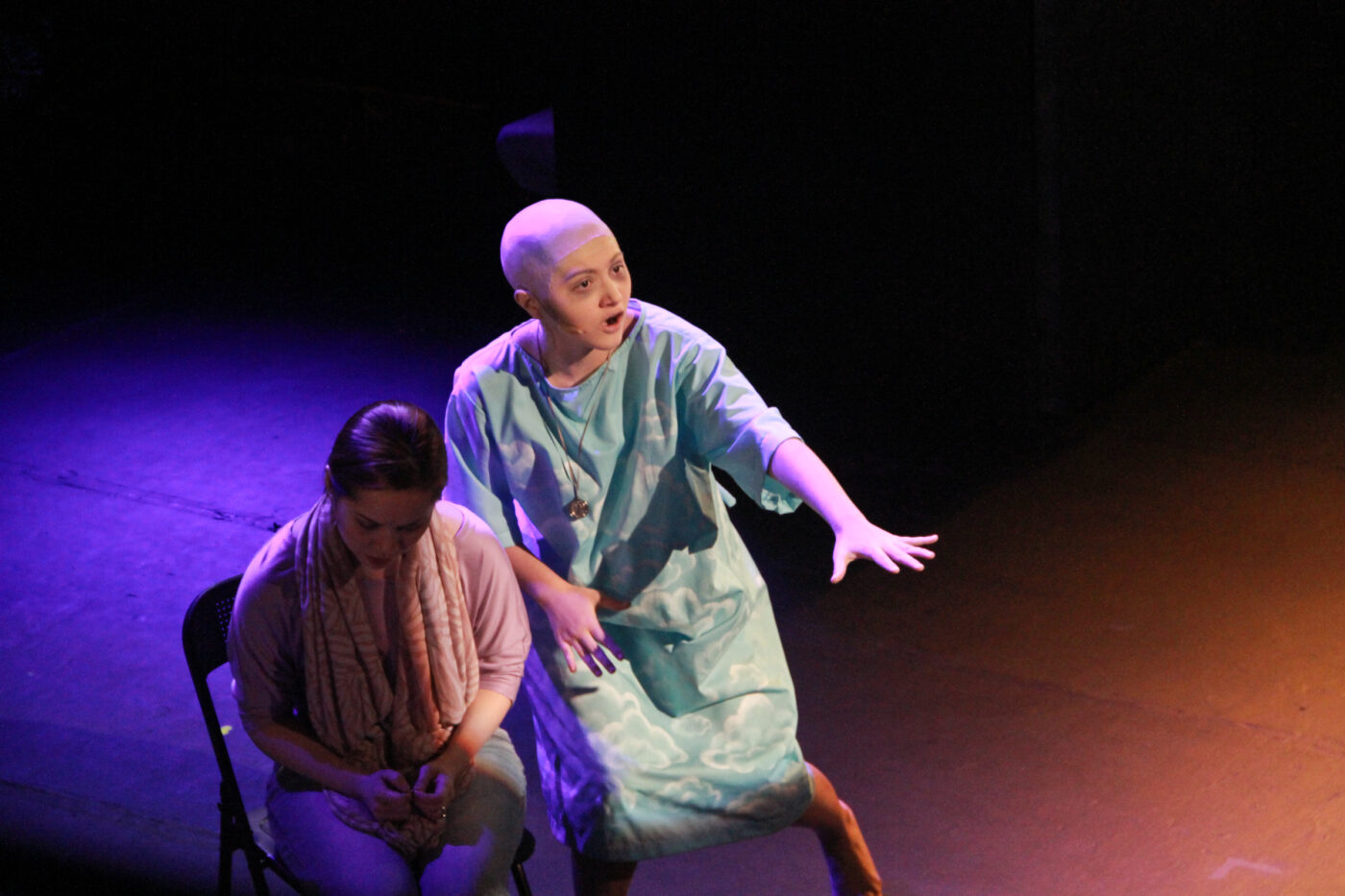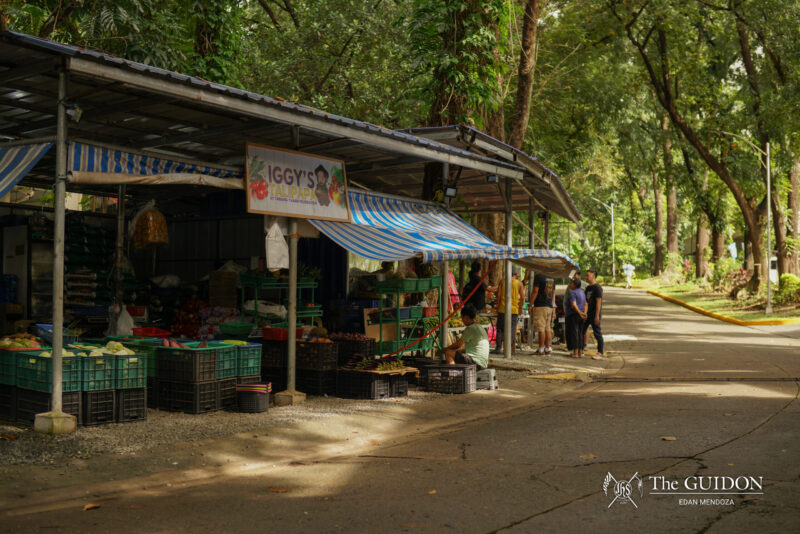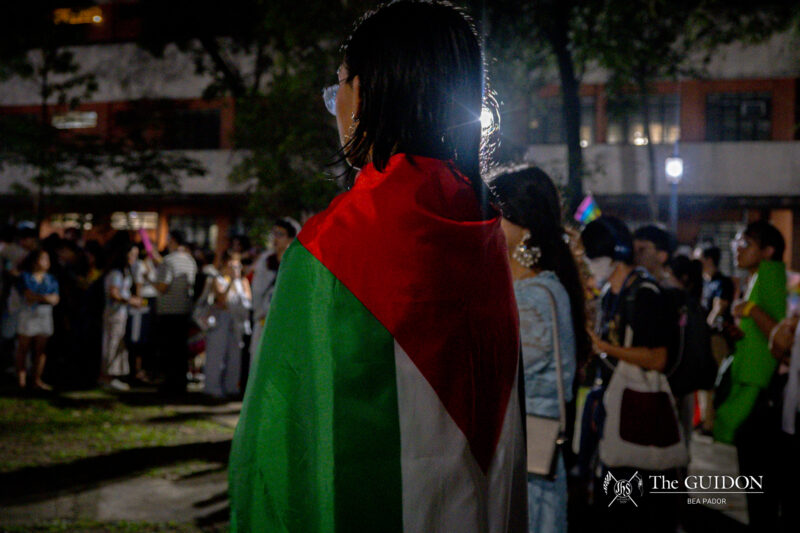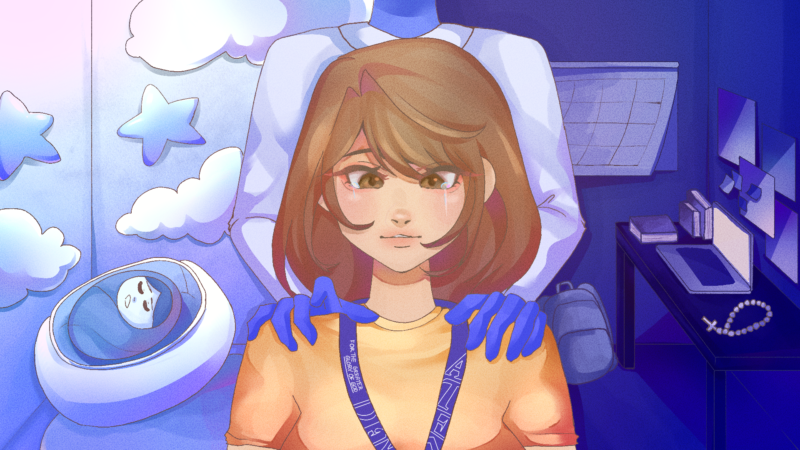A single spotlight focuses on the center of the stage. A little girl in a hospital gown walks out, her outstretched arms holding a shoebox with a stuffed rabbit doll inside. She begins a mournful hymn in remembrance of her toy rabbit, which has finally succumbed to the effects of terminal cancer.
Imaginative, quirky and full of emotion, this is how Dani Girl, an Off Broadway musical about a nine-year-old girl battling leukemia, opens. In selecting such a delightfully offbeat and tear-jerking show as its maiden production, The Sandbox Collective made a statement about the kind of theater group it wants to be. Judging by the rave reviews its take on Dani Girl received, both critics and audiences liked what they saw.
By experimenting with other mediums and collaborating with all kinds of different artists, The Sandbox might just be the reinvigorating force that local theater is searching for.
Behind the curtains
After failing to get accepted into Columbia University’s MFA Directing Program twice, the Sandbox’s Managing Artistic Director Toff de Venecia (AB POS ‘08) decided that it was time to stop putting his life on hold for it. “So I decided to put up this performing arts group with the help of [9 Works Theatrical],” he says. “I work in Young Star also, and I really see what’s happening in the culture scene, in the college scene… There’s so much happening out there, everyone is working individually in their own spheres, and wouldn’t it be nice to bring everyone together?”
Since April this year, the Sandbox has done precisely that; according to de Venecia, the group’s creative process involves a multidisciplinary approach and embraces visual art, spoken word, film, music and dance. This process is also highly collaborative. “I suppose my job as a director [is] about steering everyone in one direction and not being, ‘Okay, we do this,’ but more of making sure that everyone’s ideas come together,” explains de Venecia.
When it came to Dani Girl, gathering input wasn’t limited to the company alone. “We wanted to be authentic about it, and so we had to do a lot of dramaturgical work,” de Venecia shares. The preparation involved visiting the kids of Child House, a home for young cancer patients. The cast sought to understand the condition as it really was, as opposed to just reading about it in books or articles, to respectfully portray their roles.
Dani Girl was the chosen piece for this year’s Re:Imagine, where one existing show from Broadway, Off Broadway or the West End is selected and recreated to better fit Manila’s audiences. Aside from Re:Imagine, which is only one-third of the Sandbox’s yearly program, there is also Blueprint and Imaginarium.
Blueprint is an annual event that features an original production from the company; currently, this is set to debut in 2015. On the other hand, this season’s Imaginarium, a multi-arts festival, ran from October 28 to 31 at the Philippine Educational Theater Association Theater. This year’s Imaginarium was branded as a “festival of the absurd,” what with all its scheduled multimedia events—from plays to short films to spoken word performances—exploring the themes of life, death and art in a daringly fresh way.
Charting the craft
Across countless countries and cultures, the surprising twists and turns that unfold in theatrical performances have succeeded in taking audiences on many an emotional rollercoaster. Still, there are also playwrights and directors who advocate theater as a way of engaging people’s thoughts: De Venecia is one of them.
“It’s not just a show, but an experience,” he says on how theater should have a purpose beyond entertainment. “It doesn’t always have to be revolutionary. For me, I feel like theater should have a conversation. And it’s also about liberating the conversation outside of the four walls of the theater.”
The Sandbox accomplishes this through activities like Fore:Play, a pre-show activity that jumpstarts the whole discourse, and Talkback, where audiences get to interact with the cast and crew after certain performances.
Its choice of plays also reflects its aim to engage audiences with more serious and thought-provoking topics. For instance, the Imaginarium showcase featured plays like Sipat Lawin’s version of Ubu Roi, a burlesque parody of Shakespeare’s Macbeth that explores power and greed. Another is Mga Kuneho, a play on senseless murder and despair written by literature (English) supersenior Guelan Luarca.
Sandbox’s intentions in this regard may not be the best way to attract mainstream audiences, but this does allow it to create a certain niche. Giselle Garcia (AB LIT (ENG) ‘08), a part-time instructor at the Fine Arts Program and the dramaturg of the Sandbox’s staging of Dani Girl, thinks that the group is poised to do well. “I’m a big believer in how you don’t have to attach yourself to big names to actually do good work, and that’s what independent companies like Sandbox is doing,” she muses.
Still, it might be a bit too early to claim smooth sailing for the Sandbox from here on out. De Venecia recognizes this, mentioning how it took them some time to gain traction: “Every time you do something different, there will always be a critic… People [are] used to things being done a certain way, [so] of course, you’re going to shock their sensibility.” Similarly, he mentions how there are practical constraints to consider, such as the high overhead cost of production.
In spite of these challenges, de Venecia intends to persevere with what he has started. “Hopefully, with Sandbox, we can open doors for people,” he shares.
Art in absurdity
Although the writing and practice of drama dates way back to ancient times, the style of “theater of the absurd” isn’t quite as old. It was born as a literary movement in the wake of World War II, as artists and writers began to question the larger scheme of life in the midst of seemingly senseless death and destruction. Here, they use equally absurd scripts and sets to showcase their controversial and experimental new style. Samuel Beckett’s tragicomedy, Waiting for Godot, which is about exactly what the title suggests, and Jean-Paul Sartre’s No Exit, a grim depiction of the afterlife, are just two examples of this rich genre charged with philosophical themes on the human condition.
These themes have resonated particularly well with millennials, the Sandbox’s main target audience. According to de Venecia, a twenty-something himself, growing up in a new millennium has imparted to this generation a drive to explore the world. More often than not though, this exploration involves a struggle with personal questions on the larger scheme of things.
As a genre then, the theater of the absurd acts as an invitation to think. “When you encounter something that’s uncomfortable, it leaves a lasting impression to help you ruminate on your life better,” de Venecia explains.
When cast in this light, the performing arts mirrors today’s creative breakthrough while celebrating yesterday’s genius. This way, theater serves not just as a space for dated works to be relived, but also as a riveting prompt for thoughtful discussion.
As art is a reflection of the times, various art forms change with it. As Garcia puts it, “Sandbox might literally be what its name is. It’s literally a box where you can play with whatever… It’s that flexible and it’s that open to the kind of theater artist that does not want to confine itself in a particular type of way of doing things.”
In a local theater scene overcrowded with high-flying witches, red-headed orphans and bohemian twenty-somethings, The Sandbox Collective brings something new to the mix. It might not yet be as experienced as other theater groups, but by fearlessly tackling complex subject matter in an experimental manner, there is no doubting that it holds a relevant place in today’s stream of spotlights and stages.







